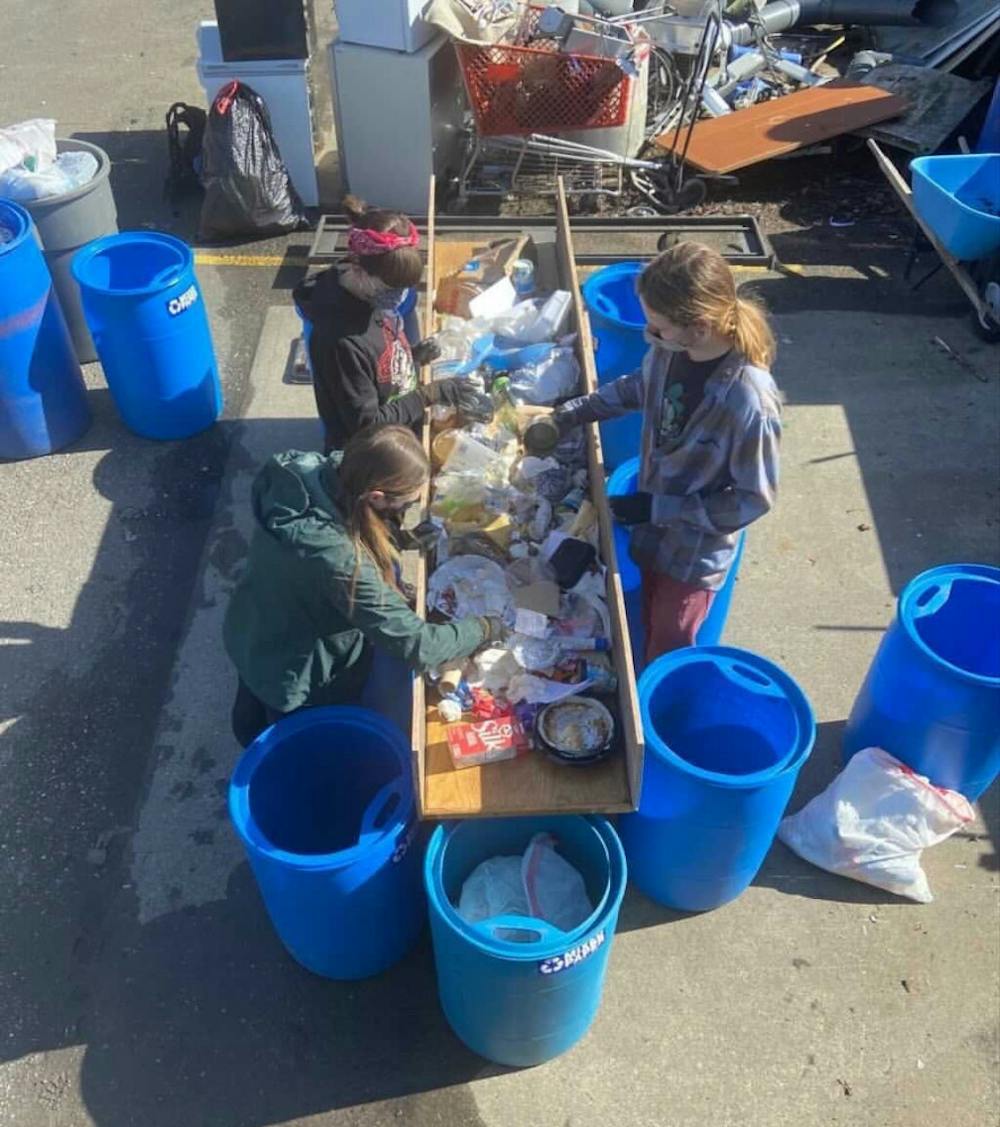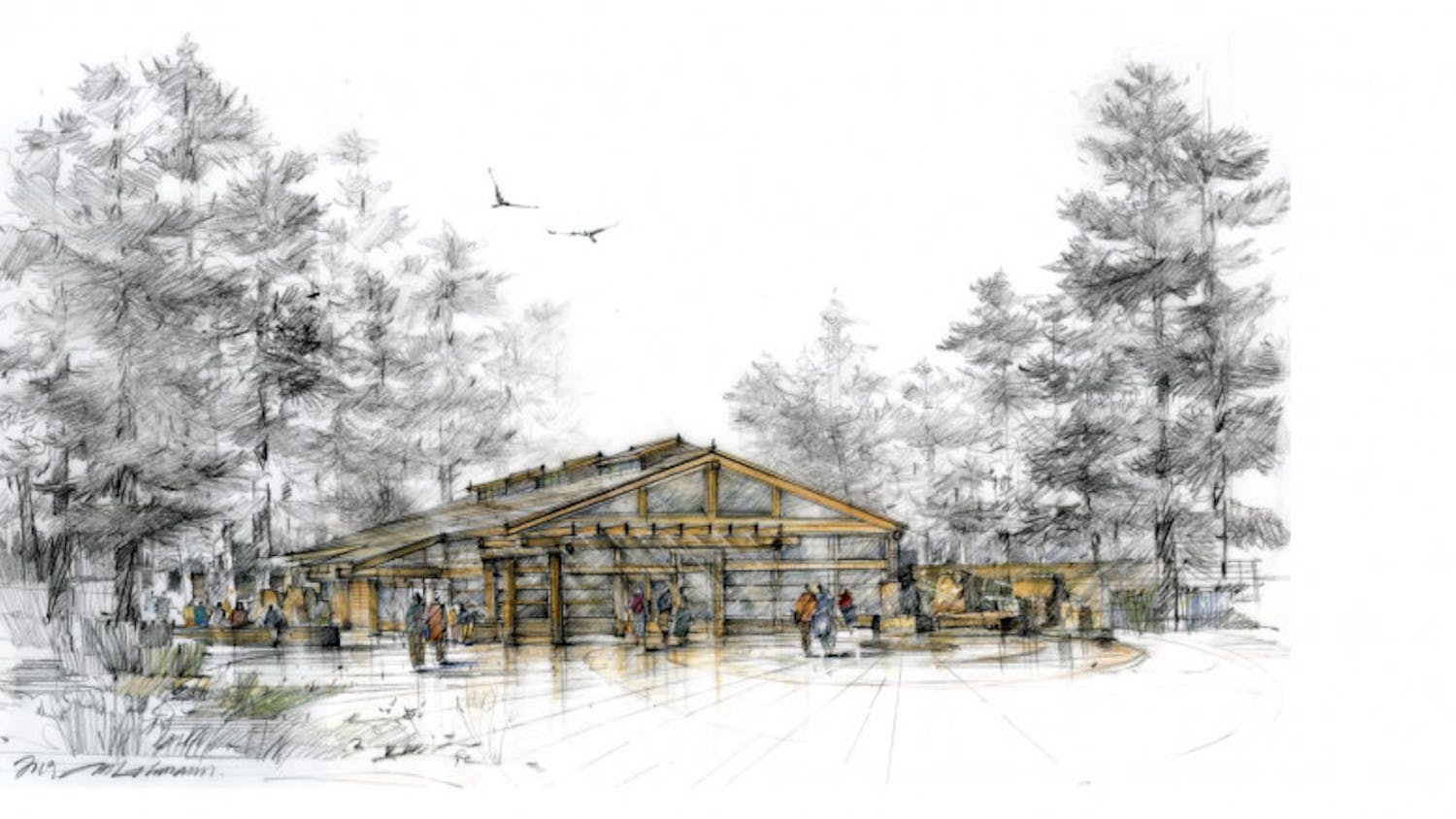Western students are planning for the future when making decisions about food

Western Washington University student advocates for sustainability continue to work on and off campus to encourage food choice awareness for the health of themselves, their community and the planet.
Lauren Sanner, the head coordinator of Zero Waste Western, is a fourth-year student studying environmental studies and working towards an academic certificate in geographic information systems.
Sanner has been with Zero Waste Western for two years and said it aims to provide fun, educational outreach and campaigns focused on inviting other students and young adults to join an ongoing conversation about sustainability.
Speaking on her own experience with food sustainability, Sanner said that the education surrounding environmentally friendly practices could be more accessible and localized.
“There is a preconceived idea that to have sustainable options you have to have the money to choose them, but there are a lot of ways anyone can reduce their waste and have sustainable practices,” Sanner said.
Sanner said that a good starting point for someone just starting their sustainability journey would be to first adjust your waste habits, not your consumer habits.
Composting is an easy and accessible first step when trying to find a better way to get rid of food scraps without adding anything to your bills, Sanner said.
Budgeting and convenience are among the top factors influencing Sanner’s food choices, a sentiment she has seen reflected in her peers.
“A lot of people it seems, especially young college students, see their food in a way where it's almost an afterthought,” Sanner said. “You're just trying to get substance in your body as conveniently and quickly as possible so you can move on to your next task.”
Because of this, Sanner said that small changes make a big difference and are the habits that can be kept over time.
Incorporating community into your new, eco-minded habits also helps to keep them alive, said Sanner, who spoke about thrifting materials for napkins to replace paper towels with her roommates.
Sustainable options that the popular media presents are often focused around purchasing new sustainable items instead of emphasizing the importance of reusing what you already have, Sanner said.
Sanner said this shows the difference between localized education about food sustainability specific to where you live and the information promoted through mass media.
Community, connection and being engaged locally are important parts of any lasting sustainable journey, Sanner said.
Seb Genge is a member of Net Impact, a national organization that is dedicated to making business more sustainable.
Genge said sustainable thought starts with considering the greater impacts of our choices and how that is relevant to food.
Environmentally focused food decisions can focus on any or all points including production, distribution, consumption and waste Genge said. He also said most food waste occurs in the process of consumption and disposal.
“It’s really in a household fridge where the most food is going to waste,” Genge said.
The United States Department of Agriculture estimates that in the U.S., 30 to 40% of the American food supply is wasted, 31% of the food loss occurring at the consumer level.
“How can you reduce waste? How are you intentional about the impact your food choices have on all of the stakeholders involved?” Genge said these are essential questions people should ask themselves when navigating food options.
Genge said he acknowledges the cost that can be associated with sustainable foods and said there is a greater shift that needs to happen within food production.
Funding that goes to large-scale, monoculture crop farming could be directed instead to small, local farms that would be able to provide a community with a more diverse set of food options at a lower price.
One of Western’s Associated Student senators of Huxley College of the Environment, Laura Wagner, is a member of Shred the Contract, a student group working to revive Western’s sustainability action plan and end Western’s relationship with Aramark, an American food service company that operates globally.
As an alternative, Wagner said Shred the Contract is pushing for self-operating dining, which would shift the dining hall’s dependency to small-scale, local providers.
“If Western decision makers want our institution to be recognized as a leader for sustainability and environmentalism, then development of a strategic plan to transition to self-operative dining must be incorporated,” Wagner said.
Shred the Contract released a letter on May 20 that speaks to the ethical dilemma Western’s partnership with Aramark poses and calls on Western’s current and future leaders to be involved with updating a plan to avoid another contract extension or renewal with the large corporation.
The letter discusses the lack of accessibility the Aramark partnership provides and urges Western to make dining services a university-run department which would bring the power back to the school and the students.
“Having a partnership with Aramark contradicts all of the sustainability pillars,” Wagner said.
Johnathan Riopelle, Western’s Sustainability, Equity, & Justice Fund Manager, described the purpose and value of these pillars as part of the mission of the Office of Sustainability.
“The Office of Sustainability promotes sustainability throughout Western by advancing the four pillars of sustainability: protecting local and global ecology, upholding social equity, creating economic vitality and maintaining human health,” Riopelle said.
Riopelle said education and access are two of the predominant factors in dietary decision-making and like Genge he believes that information empowers and incentivizes people to make engaged, community minded choices about their food.
“When we make mindful, environmentally-aware choices about food, we are making life-impacting decisions for ourselves and others,” Riopelle said. “We have an opportunity to make the world kinder, more sustainable and more just with every choice we make.”
Brianna Poulos is a third-year News and Editorial Journalism major and a reporter for The Front. She enjoys exploring art, community, and events in her writing and has also written for Whatcom Community College’s publication, The Horizon. When she is not reporting, Brianna spends her time painting, watching movies and baking. She can be contacted at briannapoulos.thefront@gmail.com.
Brianna Poulosis a fourth-year News and Editorial Journalism major and a reporter for The Front. She enjoys exploring art, community, and events in her writing and has also written for Klipsun and Whatcom Community College’s publication, The Horizon. When she is not reporting, Brianna spends her time painting, watching movies and baking. She can be contacted atbriannapoulos.thefront@gmail.com.






